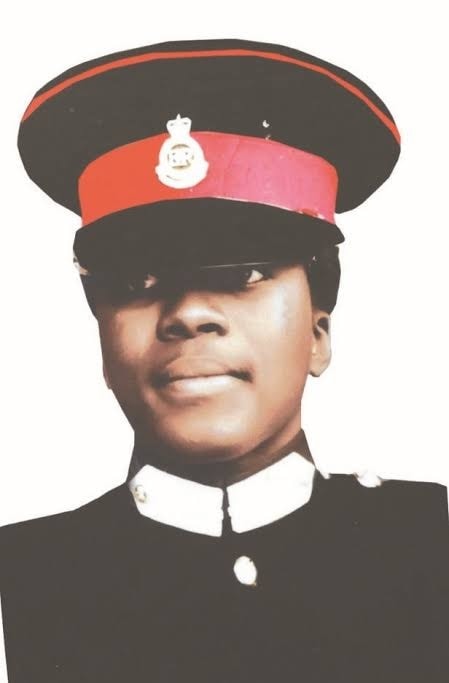Akinloye Akinyemi (1954–2012), popularly known by the nickname “Sergeant Carter,” was a Nigerian Army Major whose career became inseparable from two of Nigeria’s most controversial coup allegations. His life and trials mirrored the turbulence of Nigeria’s military rule in the 1980s and 1990s.
Early Life and Military Career
Born in 1954 into the prominent Akinyemi family, Akinloye was the younger brother of Professor Bolaji Akinyemi, the internationally respected scholar and former Nigerian Minister of External Affairs. He trained as an officer in the Nigerian Army Signal Corps, the branch responsible for military communications and intelligence. Known for discipline and technical expertise, he rose through the ranks as Nigeria’s political climate became increasingly unstable.
First Coup Allegation: 1987 under Babangida
During the regime of General Ibrahim Babangida, Nigeria faced a series of internal military tensions. In 1987, Akinyemi was arrested alongside several officers for allegedly plotting to overthrow the government. The case, widely reported in the Nigerian press, highlighted the deep suspicion and power struggles within the armed forces. Though charged, Akinyemi was not executed, and he eventually regained his freedom—a pattern that would repeat later in his career.
Second Coup Allegation: 1995 under Abacha
Eight years later, during General Sani Abacha’s military government, Akinyemi again faced accusations of involvement in a coup plot. This time, the regime carried out sweeping arrests of military and civilian figures, including former Head of State General Olusegun Obasanjo. Akinyemi was tried by a military tribunal and sentenced to a lengthy prison term. As with many of the accused, domestic and international pressure—including calls from human rights groups—eventually led to commuted sentences and later releases.
These two arrests made Akinyemi one of the most discussed figures in Nigeria’s history of coup allegations, emblematic of the climate of fear and political intrigue that marked the Babangida and Abacha years.
Public Perception and Legacy
To some, Akinyemi was a victim of Nigeria’s volatile military politics, repeatedly caught in the web of suspicion and authoritarian crackdowns. To others, his name became synonymous with the shadowy coup culture of the era. His enduring nickname “Sergeant Carter,” borrowed from the brash drill instructor in the American TV show Gomer Pyle, U.S.M.C., reflected both his bold personality and his reputation among peers.
Family and Later Life
Akinyemi’s life stood in sharp contrast to that of his elder brother Bolaji Akinyemi, whose career as a respected diplomat and scholar represented Nigeria on the world stage. This family dynamic underscored the different paths shaped by Nigeria’s complex political environment.
Major Akinyemi passed away in 2012 at the age of 58, closing the chapter on a life that captured the tensions of an era when Nigeria’s military and politics were deeply entwined.
Historical Significance
Akinyemi’s story is more than a personal biography. It illuminates the unsteady balance of power during Nigeria’s years of military rule, when allegations of coups—whether real or perceived—were often used to consolidate authority and silence dissent. His trials remain a reminder of the fragility of governance and the high stakes of political ambition in late 20th-century Nigeria.
Sources
Vanguard Nigeria – “Former Army Major Akinloye Akinyemi Dies at 58” (2012)
FOLLOW US ON:
FACEBOOK
TWITTER
PINTEREST
TIKTOK
YOUTUBE
LINKEDIN
TUMBLR
INSTAGRAM































